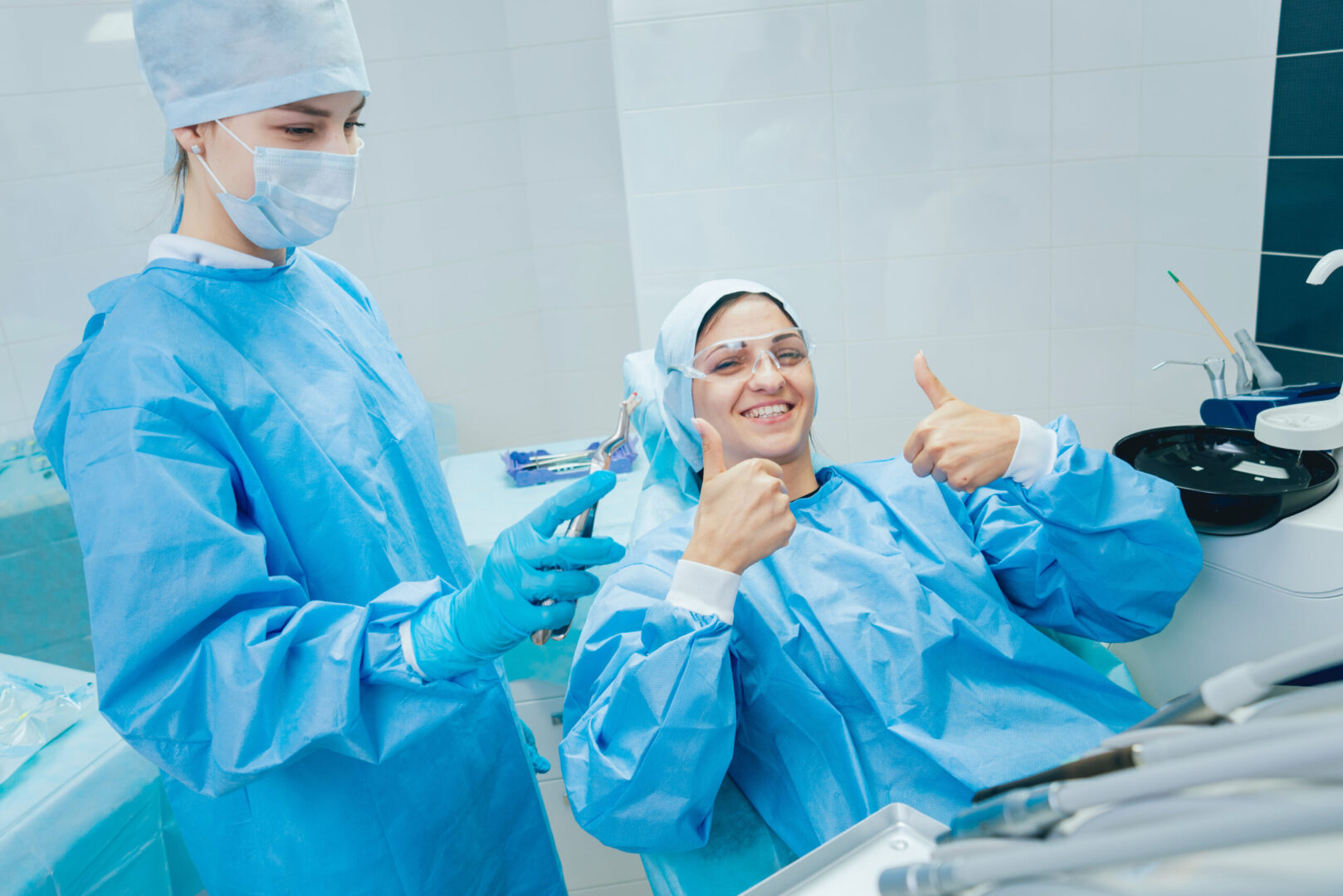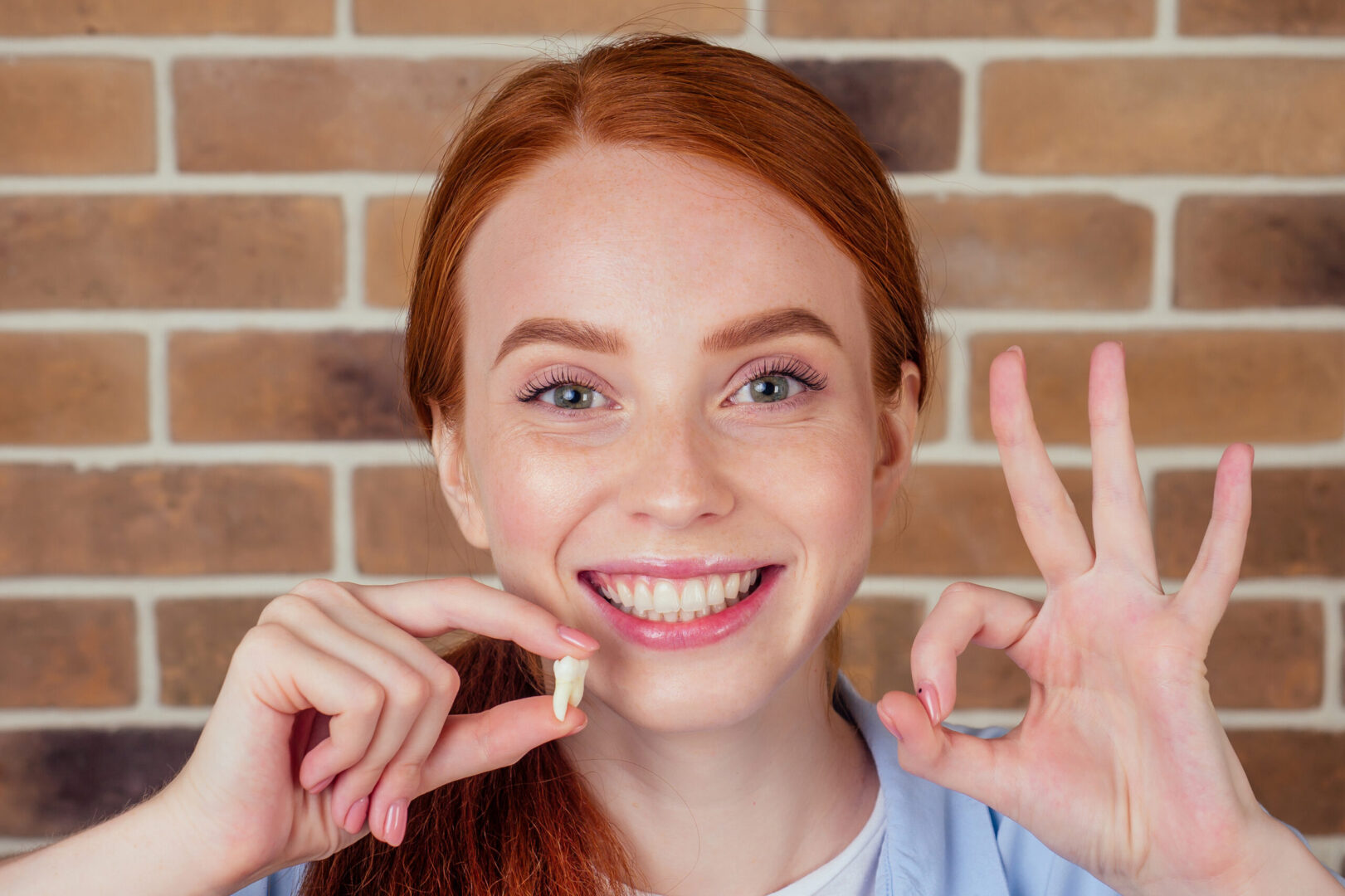Wisdom teeth removal can be a serious surgical procedure. Post-operative care is very important. Unnecessary pain and complications such as infection and swelling can arise if proper care is not taken. We’ve put together these post-op instructions to help you with your wisdom teeth removal recovery.


The gauze pad placed over the surgical area should be kept in place for 30-60 minutes. After this time, the gauze pad should be removed and discarded. Additional gauze may be placed if bleeding continues.
Vigorous mouth rinsing and/or touching the wound area following surgery should be avoided. This may initiate bleeding by causing the blood clot that has formed to become dislodged.
Take the prescribed pain medications as prescribed as soon as you begin to feel discomfort. This will usually coincide with the local anesthetic becoming diminished.
Restrict your activities the day of surgery and resume normal activity when you feel comfortable.
Place ice packs to the sides of your face where surgery was performed. Refer to the section on swelling for a more thorough explanation.
A certain amount of bleeding is to be expected following surgery. Slight bleeding, oozing, or redness in the saliva is not uncommon. Excessive bleeding may be controlled by first rinsing or wiping any old clots from your mouth, then placing a gauze pad over the area and biting firmly for thirty minutes. Repeat if necessary. If bleeding continues, bite on a moistened black tea bag for thirty minutes. The tannic acid in the black tea helps to form a clot by contracting bleeding vessels. To minimize further bleeding, do not become excited, sit upright, and avoid exercise. If bleeding does not subside, call our office for further instructions.
The swelling that is normally expected is usually proportional to the surgery involved. Swelling around the mouth, cheeks, eyes, and sides of the face is not uncommon. This is the body’s normal reaction to surgery and eventual repair. The swelling will not become apparent until the day following surgery and will not reach its maximum until 2-3 days post-operatively. However, the swelling may be minimized by the immediate use of ice packs. Two baggies filled with ice, or ice packs, should be applied to the sides of the face where surgery was performed. The ice packs should be left on continuously while you are awake. After 36 hours, ice has no beneficial effect. If swelling or jaw stiffness has persisted for several days, there is no cause for alarm. This is a normal reaction to surgery. Thirty-six hours following surgery, the application of moist heat to the sides of the face is beneficial in reducing the size of the swelling.
For moderate pain, one or two tablets of Tylenol or Extra Strength Tylenol may be taken every 3-4 hours. Ibuprofen (Advil or Motrin) may be taken instead of Tylenol. Ibuprofen bought over the counter comes in 200 mg tablets: 2-3 tablets may be taken four times daily, not to exceed 3200mg daily for an adult. Consult our practice for individuals under 18. Do not take the two medications at the same time.
For severe pain, the prescribed medication should be taken as directed. Do not take any of the above medication if you are allergic to them, or have been instructed by your doctor not to take it. Do not drive an automobile or work around machinery. Avoid alcoholic beverages. Pain or discomfort following surgery should subside more and more every day. If pain persists, it may require attention and you should call the office.
After general anesthetic or IV sedation only, liquids should be consumed initially. Drink from a glass and do not use straws. The sucking motion can cause more bleeding by dislodging the blood clot. You may eat anything soft by chewing away from the surgical sites. A high calorie, high protein intake is very important. Our staff can provide suggested diet instructions. Nourishment should be taken regularly. You should prevent dehydration by taking fluids regularly. Your food intake will be limited for the first few days. You should compensate for this by increasing your fluid intake. At least 5-6 glasses of liquid should be taken daily. Try not to miss any meals. You will feel better, have more strength, less discomfort and heal faster if you continue to eat.
CAUTION: If you suddenly sit up or stand from a lying position you may become dizzy. If you are lying down or sitting following surgery, make sure you sit upright for one minute before standing.
No rinsing of any kind should be performed until the day following surgery. The day after surgery you should begin rinsing at least 5-6 times a day, especially after eating, with a teaspoon of salt mixed into one cup of warm water.
In some cases, discoloration of the skin follows swelling. The development of black, blue, green, or yellow discoloration is due to blood spreading beneath the tissues. This is a normal post-operative occurrence, which may occur 2-3 days after surgery. Moist heat applied to the area may speed up the removal of the discoloration.
If you have been placed on antibiotics, take the tablets or liquid as directed. Antibiotics will sometimes be given to help prevent infection. Discontinue antibiotic use in the event of a rash or any other unfavorable reaction and contact our office immediately. Call the office if you have any questions.
Locations